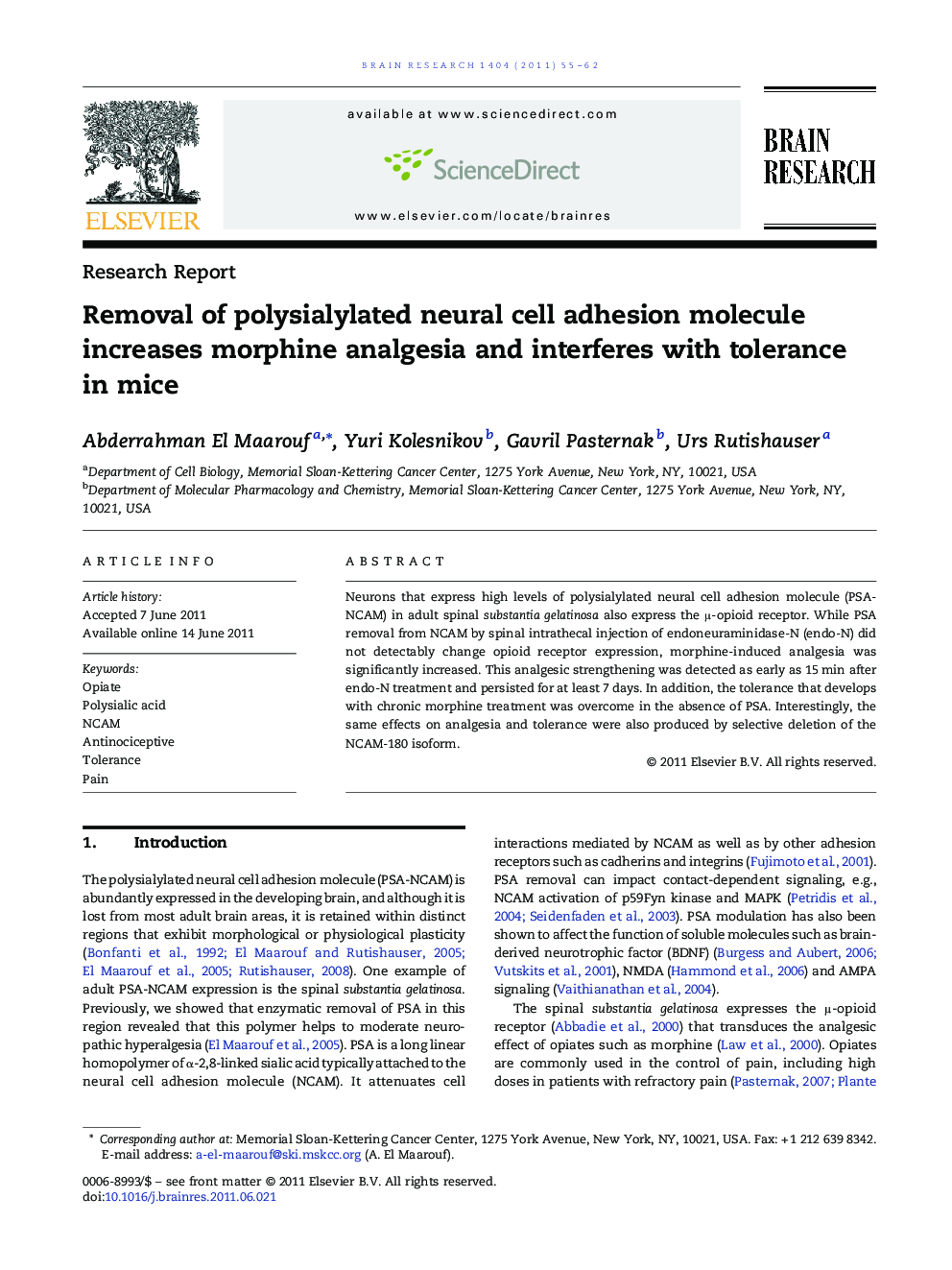| Article ID | Journal | Published Year | Pages | File Type |
|---|---|---|---|---|
| 4325759 | Brain Research | 2011 | 8 Pages |
Neurons that express high levels of polysialylated neural cell adhesion molecule (PSA-NCAM) in adult spinal substantia gelatinosa also express the μ-opioid receptor. While PSA removal from NCAM by spinal intrathecal injection of endoneuraminidase-N (endo-N) did not detectably change opioid receptor expression, morphine-induced analgesia was significantly increased. This analgesic strengthening was detected as early as 15 min after endo-N treatment and persisted for at least 7 days. In addition, the tolerance that develops with chronic morphine treatment was overcome in the absence of PSA. Interestingly, the same effects on analgesia and tolerance were also produced by selective deletion of the NCAM-180 isoform.
► In the dorsal spinal cord, PSA is co-expressed with the μ-opioid receptor in the same neurons. ► The enzymatic removal of PSA induced a rapid and persistent increase in morphine analgesia. ► Morphine tolerance was not observed following PSA removal. ► Selective deletion of the NCAM-180 isoform reproduced the effects of enzymatic removal of PSA. ► The effects of PSA removal on morphine analgesia and tolerance are produced by an increase in NCAM function.
